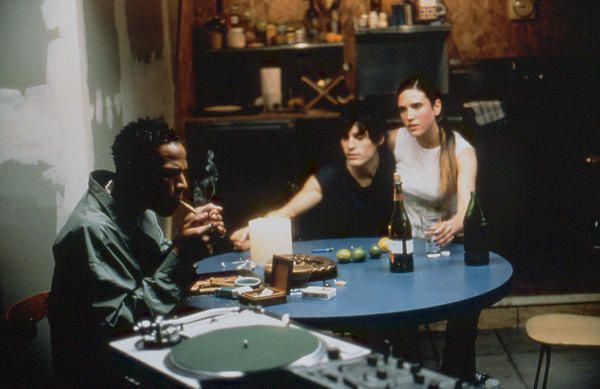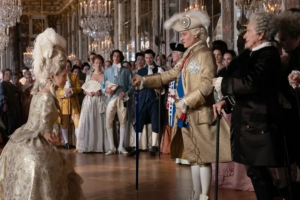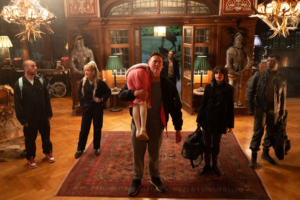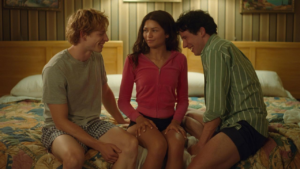Reviewed by GREG KING
Director: Darren Aronofsky
Stars: Ellen Burstyn, Jared Leto, Jennifer Connelly, Marlon Wayans, Christopher McDonald, Louise Lasser, Sean Gullette.
Darren Aronofsky first burst onto the scene with Pi, his visually exciting but virtually incomprehensible thriller mixing mathematics and paranoia. His second film deals with more emotionally involving material, but is just as visually stunning and disturbingly nihilistic piece of cinema that will shock and confront audiences, much as A Clockwork Orange did thirty years ago. Based on a 1978 novel by Herbert Selby jr (Last Exit To Brooklyn, etc), Requiem For A Dream is a tough, dark parable about addiction, obsession, the allure of fame and riches, and the souring of the American dream.
Sara (Oscar winner Ellen Burstyn in easily her most powerful, demanding and painfully raw performance for over a decade) is a lonely Jewish widow who lives in a seedy apartment block in a rapidly decaying area near Coney Island. Sara’s main interest is watching television game shows and self-help shows. She barely tolerates her son’s behaviour, which includes regularly pawning her beloved tv set, believing that he will kick his drug habit and get a good job. When she believes she is about to become a contestant on a quiz show, Sara goes all out to improve her image. She begins taking diet pills proscribed by a doctor, and before long is addicted to them.
Meanwhile son Harry (American Psycho’s Jared Leto, looking a little wasted in probably his darkest role to date) is interested in scoring a big drug deal with his best friend Tyrone (Marlon Wayans), which puts pressure on his relationship with Marion (Jennifer Connelly). Thus begins a nightmarish downward spiral into addiction and madness for both mother and son, which is painful to watch. Requiem For A Dream climaxes in one of the most harrowing fifteen minutes ever committed to film.
Requiem For A Dream is certainly not pleasant viewing, and Aronofsky doesn’t pull any punches – but somehow its grim subject matter exerts a compelling fascination that draws audiences in. Aronofsky uses a series of visual tricks, such as fish eye lenses and unsettling close-ups and unusual camera angles, to visually represent this descent into a cinematic nightmare, replete with hellish hallucinations, shock treatments, drug abuse, sexual orgies, and other horrors. The dynamic and painfully grueling performances from the leads also add to the bleakness and realism of this roller coaster ride.
Aronofsky has been touted as the director of the next Batman movie, and, after seeing his first two films, it will be interesting to see what this visually exciting and imaginative director does with the tired franchise.
★★★




